24th – 26th September 2025, Norwegian University of Life Sciences
Please follow the link bellow and register in order to access the livestream:
https://www.nmbu.no/evu/nordev25-solidarity-social-justice-and-sustainability

24th – 26th September 2025, Norwegian University of Life Sciences
Please follow the link bellow and register in order to access the livestream:
https://www.nmbu.no/evu/nordev25-solidarity-social-justice-and-sustainability

Registration deadlines and costs
Get ready! Early bird registration for panel conveners, presenters, and participants is now open — and you won’t want to miss it. Secure your spot before May 15th to enjoy discounted rates. After that, regular fees will apply.
Please note:
Early Bird Rates (until May 15th):
Stay tuned for more updates on the conference website, including the exciting program overview with panels, keynotes, and more!
We can’t wait to welcome you to Ås in September for NorDev25!
Uma Kathari (Confirmed Keynote Speaker)
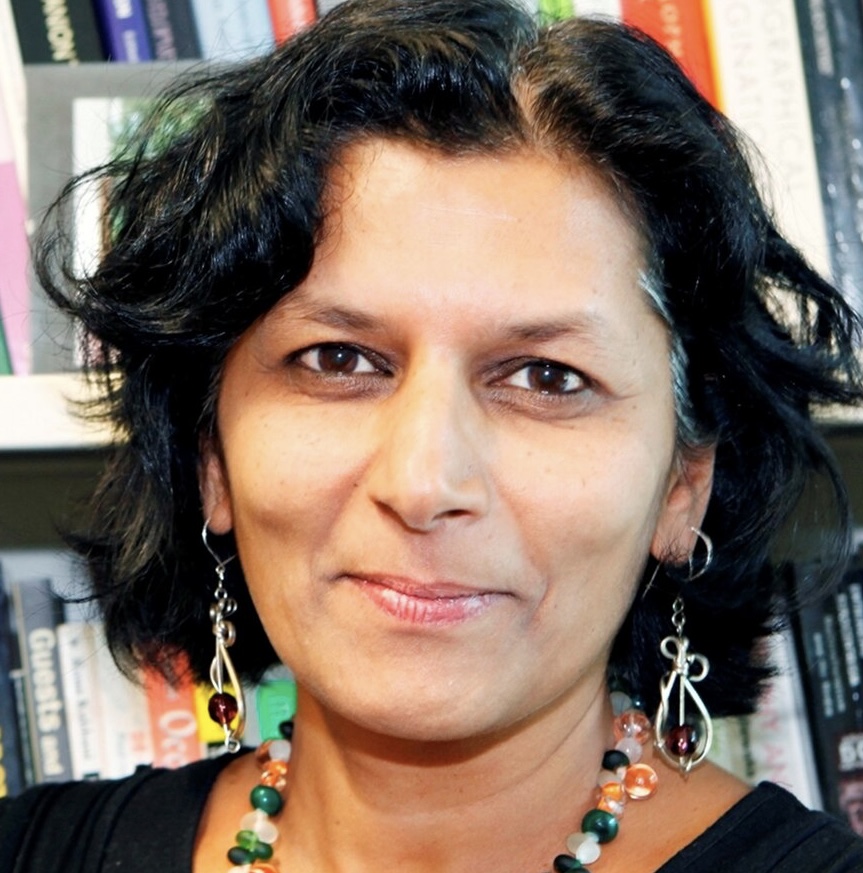
Uma Kothari is Professor of Migration and Postcolonial Studies at the Global Development Institute, University of Manchester. Her research interests include colonial legacies and decoloniality; postcolonial travel; island geographies and the power of stories. Her most
recent book, Critical Global Development, was published in 2023. She is currently a Leverhulme Major Research Fellow on the project ‘Touring Britain in the 1950s: the adventures of postcolonial travellers’.
Olle Törnquist (Confirmed Keynote speaker/panelist)
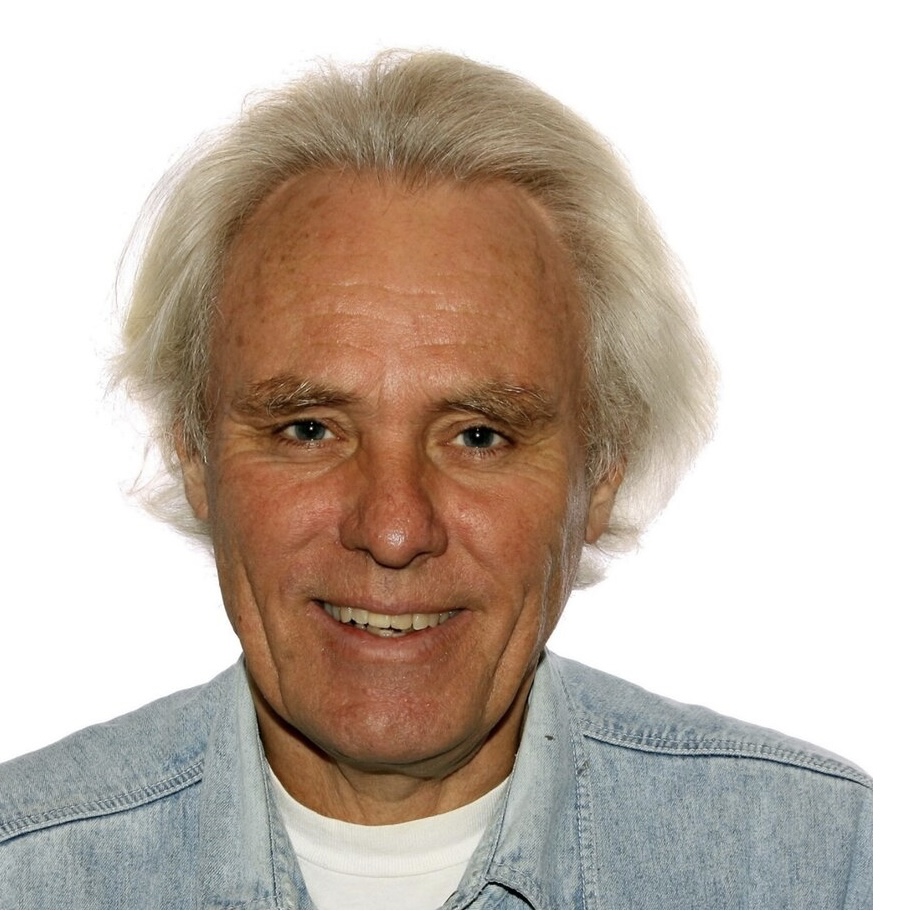
Olle Törnquist is a Swedish global historian and Professor Emeritus of Politics and Development at the University of Oslo, Norway; earlier at Uppsala University. He has written widely on radical politics, development and democratisation. His main empirical focus since the 1970s has been Indonesia, India and the Philippines, with Scandinavia and South Africa and Brazil as reference cases. The results were recently summarised in In Search of New Social Democracy: Insights from the South – Implications for the North (Zed-Bloomsbury).
Andrea Ordóñez Llanos (Confirmed Keynote speaker/panelist)
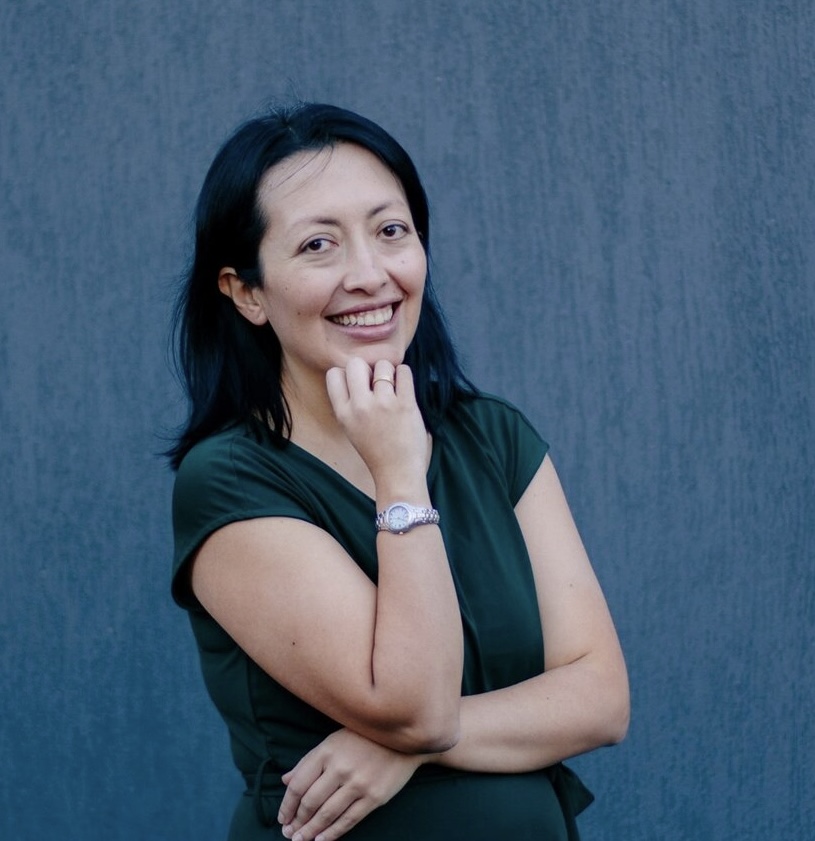
Andrea Ordóñez Llanos co-founded Southern Voice, a network of over seventy think tanks from Africa, Latin America & the Caribbean, and Asia leveraging southern evidence and analysis to promote fair global development debates. An economist by training, Andrea was previously Research Director at Grupo FARO, a think tank in Ecuador. She aims to ensure that new voices and ideas from the Global South are heard across regions to advance some of the most complex problems of our time. Her research interests are social
policy, public finance, development financing, and international cooperation. She is a member of FCDO’s International Development Expert Group, the International Scientific Advisory Board of the German Institute of Development and Sustainability (IDOS), and a Publish What You Fund board member.
Vivian Price (Researcher and Filmmaker)
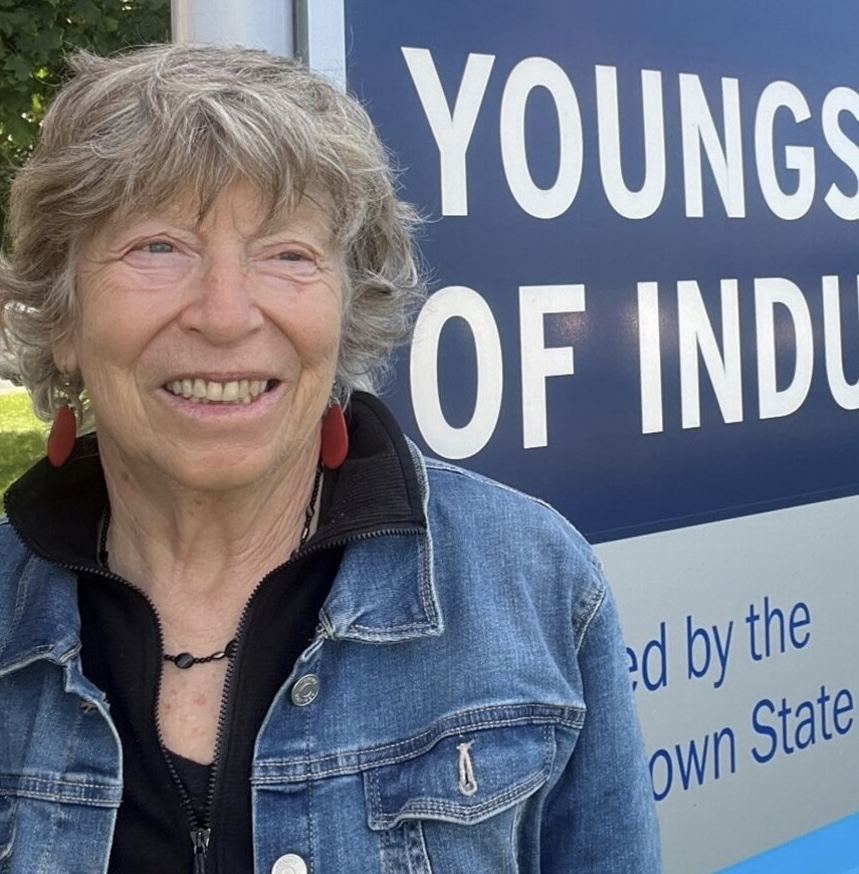
Vivian Price, PhD, Professor at California State University, Dominguez Hills & former union electrician, is a researcher and filmmaker for US and international projects on labor and climate justice. She was a Fulbright scholar at the University of Liverpool, a Fulbright specialist in Norway, working with the WAGE team at the University of Oslo on the perspective of oil workers on climate change, where she directed several video projects including Talking Union, Talking Climate. Price is a member of the Climate Industry Research Team for the Canadian Building Trades Union project on climate literacy in the construction industry. She is directing short films as part of “Transition: action, concepts, debates and strategies – an international comparison,” a study based in the Leeds School of Business and is a visiting scholar at the University of Eastern Finland working on a film on workers and environmentalists in the context of Finnish forest climate sink, as well as
serving on the research team for the Critical Minerals Just Transition Listening Project (Sloan Foundation).
In order to be considered for inclusion in the program, please indicate clearly the number and title of the panel that you wish to contribute to.
We are also aiming to accommodate a limited number of panels for paper submissions that do not fit under the themes of the open panels listed below. If your paper does not fit with in a pre-identified panel, please label your submission with “Undefined Panel”.
The list for Open Panels can be found by clicking the link bellow:

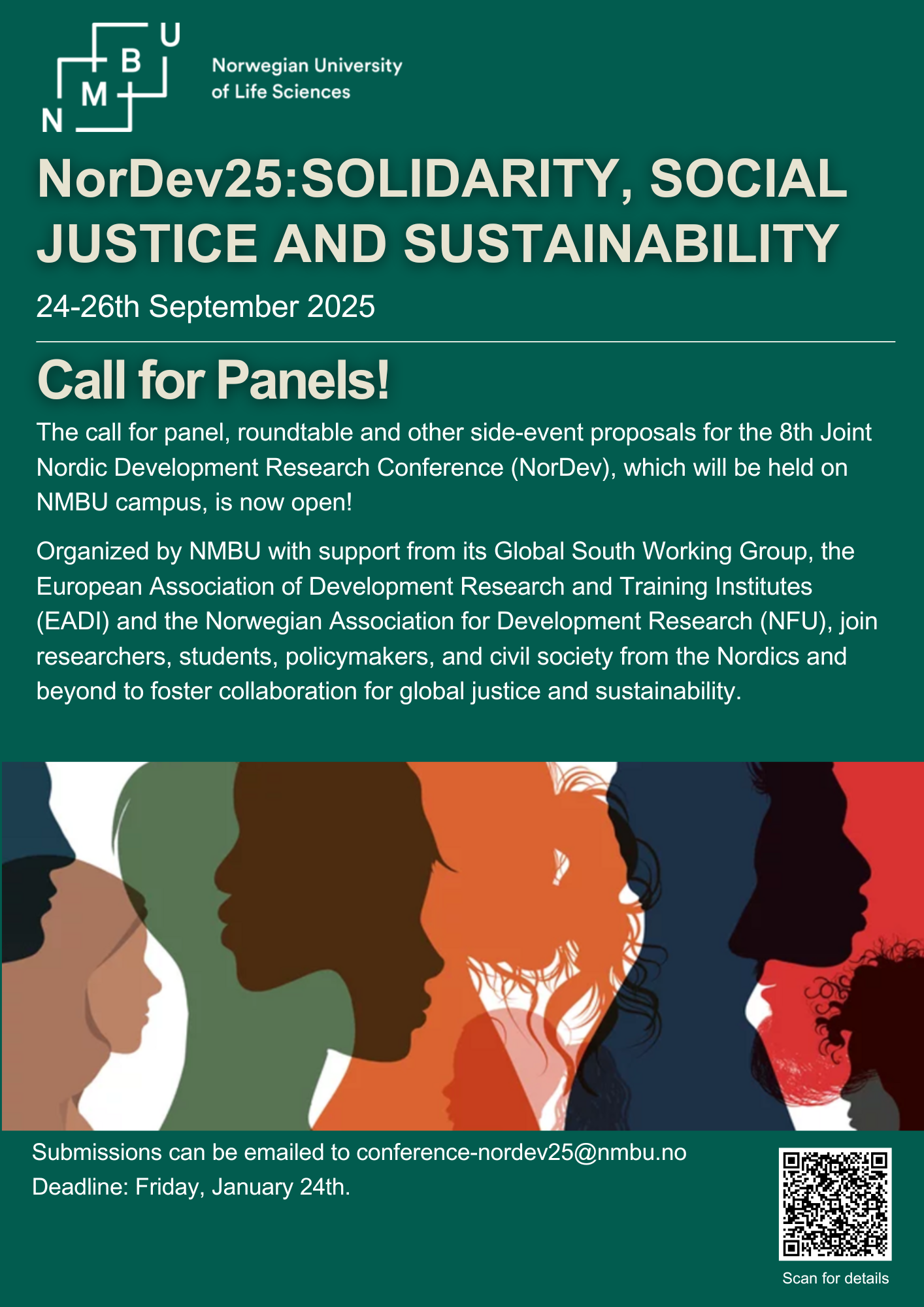
In 2023, the government decided that students from countries outside the EU must pay tuition fees to study at Norwegian educational institutions. Since then, the number of students from countries outside the EEA area has plummeted.
At UiA this year, only 17 international students pay tuition fees, nine of whom receive support through various scholarship schemes. This decline is clearly felt in studies such as the bachelor’s and master’s programmes in development studies, which were known for their international diversity among students. Now, almost all students in these programs have either Norwegian or European passports.
During Arendal Week, researchers at the Faculty of Social Sciences arranged a panel debate on the societal consequences of Norwegian lecture halls losing much of their diversity. The debate was chaired by Professor Ann Christin Nilsen at the Department of Sociology and Social Work and was arranged in collaboration with the Norwegian Association for Development Research (NFU) and SAIH.
The debate was held four years after the white paper “A world of opportunities”, in which it was argued that global problems require global solutions and more cooperation across national borders. Since then, a lot has changed. The introduction of tuition fees for students outside the EU is part of a pattern in which other support for collaboration with research and educational institutions in the Global South is also either cut or reduced. This includes support schemes such as NORGLOBAL and NORPART, which have long contributed to cooperation with countries outside the West.
A small band-aid on a large wound
To compensate for some of the drop in the number of international students, the authorities have introduced a scholarship scheme for students from selected countries in the Global South.
However, the scholarship scheme is only a small band-aid on a big wound, according to panelist and associate professor Arnhild Leer-Helgesen at the Department of Global Development and Planning. She pointed out that the scholarship scheme applies to few students and is also covered by the aid budget, which means that it in reality affects Norway’s ability to provide aid.
Came like lightning from a clear sky
UiA Rector Sunniva Whittaker also participated in the panel. She emphasized that the introduction of tuition fees came like lightning from a clear sky, but that it nevertheless draws into a pattern where the international aspect is given lower priority in research and education policy. Economy and savings were used as the main arguments for the introduction, but Whittaker wondered about the cost. UiA has largely managed to fill the study places with other students, but the diversity among the students has decreased. Whittaker fears this will affect the quality of the studies.
This view was shared by Professor Iver B. Neuman, director of the Fritjof Nansen Institute. He emphasized that discussions among fellow students from different backgrounds provide invaluable training in globalization and cosmopolitan conversation, which is essential for solving global challenges and living together.
Important to stand up for the principle of free higher education
SAIH leader Selma Bratberg also participated in the debate. She pointed out that the global situation for higher education is serious, with rising tuition fees and pressure on students’ freedom of expression.
“It is important that Norway stands up for the principle of free education,” she continued.
Bratberg also claimed that students, both now and throughout history, have been an important driving force for democracy, human rights and social change.
“In a world where authoritarian forces and nationalism are on the rise, it is extra scary
with such politics,” she concluded.
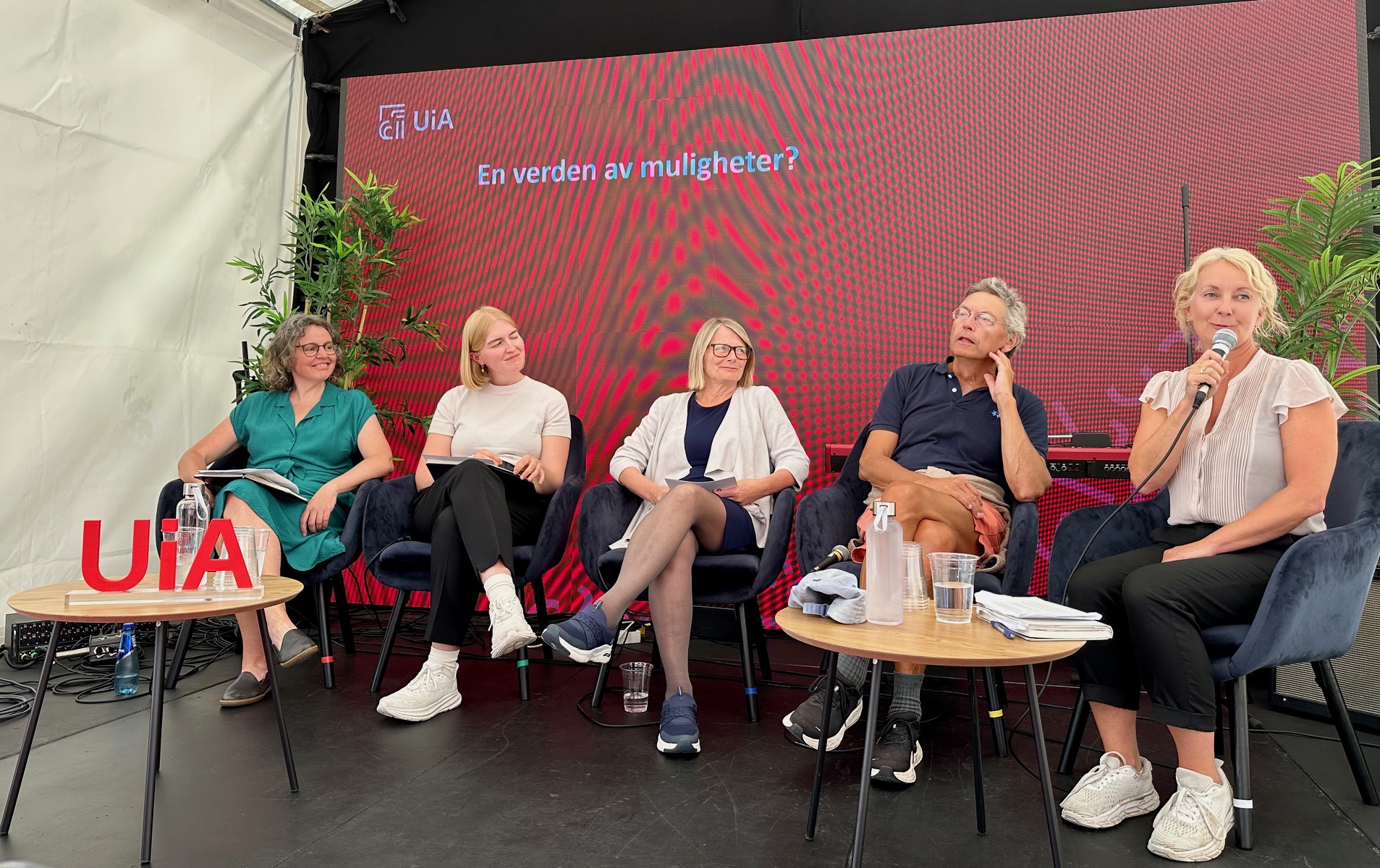
What world of possibilities?
In the autumn of 2020 – while the pandemic was still raging – the Storting’s report on student mobility called “A world of opportunities” came out. The foreword to the message states: “Spring 2020 has clearly shown us how dependent we are on each other and how intertwined the world is. International cooperation and dialogue across national borders are prerequisites for being able to handle the major global social challenges the world is facing. Global challenges require global solutions.” Just over two years later, tuition fees were introduced for students from countries outside Europe and the result is markedly fewer international students at Norwegian universities. This is part of a larger picture where support for collaboration with higher education institutions and researchers in the global south is cut or reduced (e.g. NORGLOBAL and NORPART). What are the immediate consequences of this for the quality of education and research? Should we see these policy changes as something more than domestic education and research policy? What long-term consequences could this have for the labor market and Norway’s international relations? At Arendalsuka, we invite you to a discussion about who the Norwegian authorities have in mind when exchange and academic cooperation are to contribute to finding global solutions to global challenges.
Please click on the link bellow for more details:
https://www.arendalsuka.no/programsok/details/25007

There is an ongoing discussion in Norway regarding a proposition for students outside of the EU/EØS and Switzerland to start paying tuiton when they chose to study in Norway.
Proposition 68L (2022-2023) has raise a ,ot of opposition with several organizations and universtities, such as SAIH, Universitet i Agder, NTNU and others standing against it. They all fear that this will create a barrier for students to come to Norway as well as being a starting point to start charging tuition to all students in the future.
NFU chairwoman, Arnhild Leer-Helgesen states that “The implementation of school-fees for students outside Europe/EØS and Switzerland is a serious backlash for the quality and relevance of higher education and research in Norway. To face the multiple crisis in the world we need more exchange of perspectives and knowledge, not less. The contribution of students and researchers from the so-called “Global South” to co-creation of knowledge, is heavily underrated. With this cut, adding to cuts in funds for research in the broad field of global development, Norway has less capacity to develop the knowledge we need to contribute towards the Sustainable Development Goals.”
If you wish to join the fight against the introduction of skolepenger, sign the petition started by SAIH:
https://www.change.org/p/do-not-introduce-tuition-fees-for-non-eu-students-in-norway
This week we will introduce you to one of our board members and our current lead Co-chair of NFU: Arnhild Leer-Helgesen.
Arnhild has been involved with NFU for 4 years and has taken the challenge of heading our board in the beggining of 2022.
She joined because NFU is a network of Norwegian scholars working with global development issues, but NFU also works closely with the other Nordic associations for development research and the European Association of Development Research and Training Institutes (EADI). Conferences and different activities help her keep track of ongoing debates, conferences, and publications. There is also a need for an association like NFU to unite researchers in the broader field to be able to advocate for knowledge-based policies and practices.
Her PhD was on religion and development and the role of faith-based institutions in Latin America. And she is currently working in a project on different understandings of gender across contexts, together with colleagues from Makerere University and University of Dar es Salaam.
She chose her research field because she have had an interest in international development, Latin America and religion since the start of her studies. Before her PhD she worked in international development cooperation, and her research interests are results of questions raised during these experiences.
Arnhild believes that development studies is an important field because it is a field where you get to and need to work with colleagues and other people from different contexts and you continuously reflect on power relations and situated knowledge. You meet researchers with an engagement that goes beyond the academic environment.
She currently works at the Department of Global Development and Planning at University of Agder (UiA).
Her current work involves being the project leader of the project “Gender and digitalization across contexts”, where she focus on different ways of understanding and teaching gender. She is also initiating research much closer to home, looking into how perspectives of global inequality are communicated in kindergartens.
To access some of her recent work, please follow the link below:
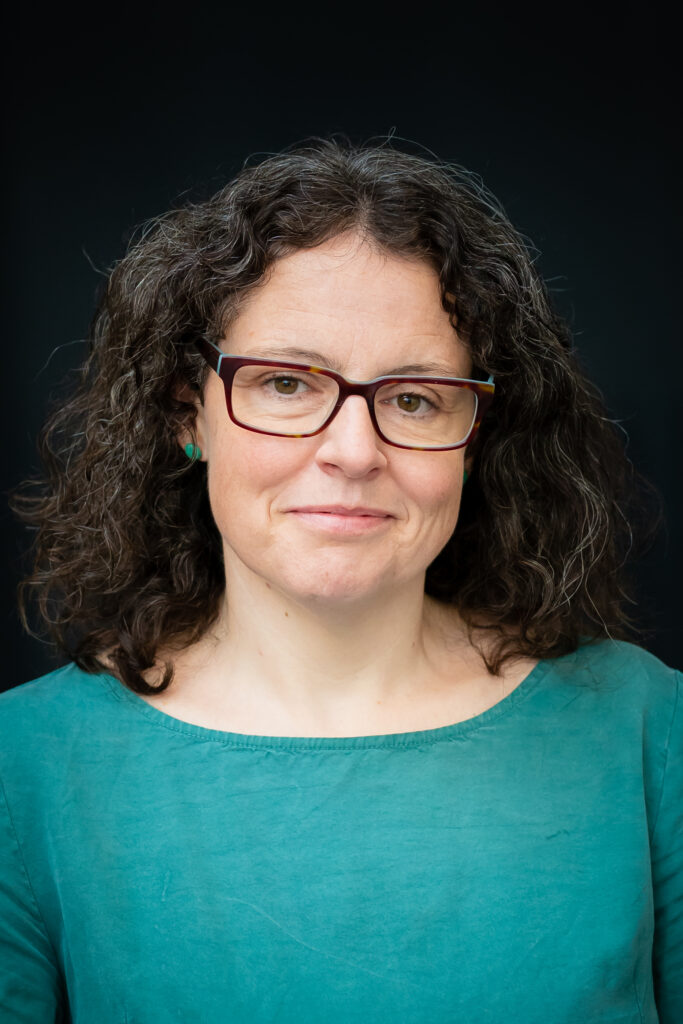
There are two open positions for PhD candidates at Universitet i Agder in connection with the FGS project.
The project focuses on: “Dual screening by Spectral Artificial Visual Examination for Female Genital Schistosomiasis and cervical cancer”
The deadline to apply is December 31st of 2022.
More information about the positions and project can be found on the link below:
